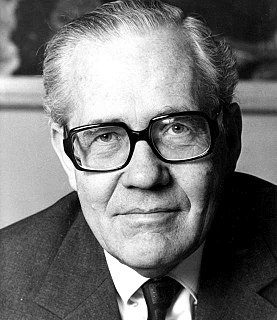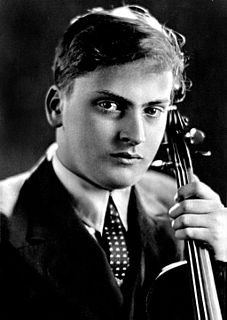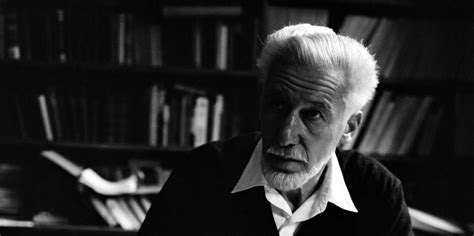A Quote by Isaac Asimov
Every period of human development has had its own particular type of human conflict---its own variety of problem that, apparently, could be settled only by force. And each time, frustratingly enough, force never really settled the problem. Instead, it persisted through a series of conflicts, then vanished of itself---what's the expression---ah, yes, 'not with a bang, but a whimper,' as the economic and social environment changed. And then, new problems, and a new series of wars.
Quote Topics
Apparently
Bang
Changed
Conflict
Conflicts
Could
Development
Each
Each Time
Economic
Enough
Environment
Every
Expression
Force
Had
Human
Human Development
Instead
Itself
Never
New
Only
Own
Particular
Period
Problem
Problems
Really
Series
Settled
Social
Social Environment
Then
Through
Time
Type
Variety
Wars
Yes
Related Quotes
Freedom is the very essence of life, the impelling force in all intellectual and social development, the creator of every new outlook for the future of mankind. The liberation of man from economic exploitation and from intellectual and political oppression, which finds its finest expression in the world-philosophy of Anarchism, is the first prerequisite for the evolution of a higher social culture and a new humanity.
We talk of regional conflicts, of economic and social crises, of political instability, of abuses of human rights, of racism, religious intolerance, inequalities between rich and poor, hunger, over-population, under-development and. I could go on and on. Each and every one of these impediments to humanity's pursuit of well-being are also among the root causes of refugee problems.
Every type of destruction that human philosophy, human science, human reason, human art, human cunning, human force, and human brutality could bring to bear against this Book, and yet the Bible stands absolutely unshaken today. At times almost all the wise and great of the earth have been pitted against the Bible, and only an obscure few for it. Yet it has stood.
The art of creation lies in the gift of perceiving the particular and generalizing it, thus creating the particular again. It is therefore a powerful transforming force and a generator of creative solutions in relation to a given problem. It is the currency of human exchanges, which enables the sharing of states of the soul and conscience, and the discovery of new fields of experience.
The study of letters is the study of the operation of human force, of human freedom and activity; the study of nature is the study of the operation of non-human forces, of human limitation and passivity. The contemplation of human force and activity tends naturally to heighten our own force and activity; the contemplation of human limits and passivity tends rather to check it. Therefore the men who have had the humanistic training have played, and yet play, so prominent a part in human affairs, in spite of their prodigious ignorance of the universe.
Habits of thought lead us to brush aside descriptions of cruelty to animals as emotional, for "animal-lovers only"; or if not that, then anyway the problem is so trivial in comparison to the problems of human beings that no sensible person could give it time and attention. This too is a prejudice - for how can one know that a problem is trivial until one has taken the time to examine its extent?
Everything established, settled, everything to do with home and order and the common ground, has crumbled into dust and has been swept away in the general upheaval and reorganization of the whole of society. The whole human way of life has been destroyed and ruined. All that's left is the bare, shivering human soul, stripped to the last shred, the naked force of the human psyche for which nothing has changed because it was always cold and shivering and reaching out to its nearest neighbor, as cold and lonely as itself.
I loved doing problems in school. I'd take them home and make up new ones of my own. But the best problem I ever found, I found in my local public library. I was just browsing through the section of math books and I found this one book, which was all about one particular problem - Fermat's Last Theorem.
Evil itself may be relentless. I will grant you that, but love is relentless too. Friendship is a relentless force. Family is a relentless force. Faith is relentless force. The human spirit is relentless, and the human heart outlasts - and can defeat - even the most relentless force of all, which is time.
For, once man is declared 'the measure of all things,' there is no longer a true, or a good, or a just, but only opinions of equal validity whose clash can be settled only by political or military force; and each force in turn enthrones in its hour of triumph a true, a good, and a just which will endure just as long as itself.
If an agency is the ultimate judge in every case of conflict, then it is also judge in all conflicts involving itself. Consequently, instead of merely preventing and resolving conflict, a monopolist of ultimate decision making will also cause and provoke conflict in order to settle it to his own advantage. That is, if one can only appeal to the state for justice, justice will be perverted in the favor of the state, constitutions and supreme courts notwithstanding.
Preservation of the environment, promotion of sustainable development and particular attention to climate change are matters of grave concern for the entire human family. No nation or business sector can ignore the ethical implications present in all economic and social development. With increasing clarity scientific research demonstrates that the impact of human actions in any one place or region can have worldwide effects.
If, as I believe, the ends of men are many, and not all of them are in principle compatible with each other, then the possibility of conflict - and of tragedy - can never wholly be eliminated from human life, either personal or social. The necessity of choosing between absolute claims is then an inescapable characteristic of the human condition. This gives its value to freedom as Acton conceived of it - as an end in itself, and not as a temporary need, arising out of our confused notions and irrational and disordered lives, a predicament which a panacea could one day put right.





































